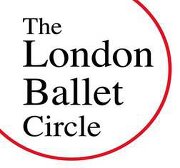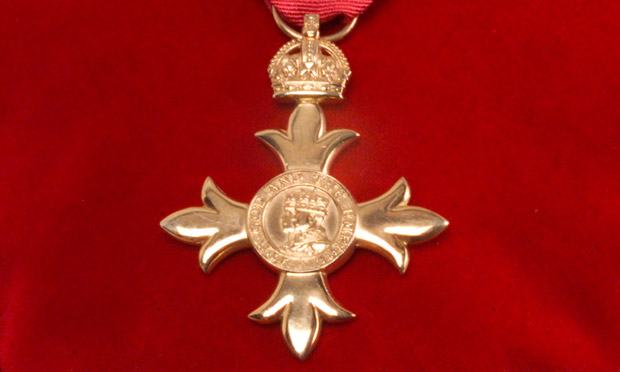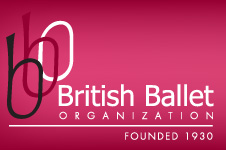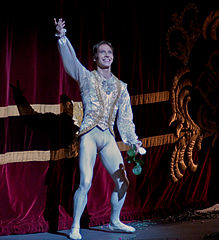 Andrew Lloyd Webber’s charitable foundation has announced six grants which will support apprenticeships within professional arts organisations. The grants total more than £150,000, meaning young people will be able to gain better access to the arts, and gain a better chance of success with funds behind them as part of organisations.
Andrew Lloyd Webber’s charitable foundation has announced six grants which will support apprenticeships within professional arts organisations. The grants total more than £150,000, meaning young people will be able to gain better access to the arts, and gain a better chance of success with funds behind them as part of organisations.
Five theatre organisations and one music festival will receive funding: Shared Experience will receive £105,000 over three years to support one trainee director and producer per year as a result of paid six-month apprenticeships; Tangled Feet will receive £14,000 over two years to help fund its participation programme for young people; Manchester Royal Exchange’s Young Company will receive £10,000; Chickenshed will receive £15,000 towards its Young Creators Programme; Icon Theatre in Medway will receive £9,000; and the Lake District International Summer Music Festival will receive £10,000. There is great variety in the organisations which have gained support, meaning benefits will be across the board of the arts industry.
Since the Andrew Lloyd Webber Foundation was re-launched in 2011, it has donated over £8.5 million to more than 120 projects. The foundation’s support of these projects will give young people valuable experience within professional arts organisations, and not just those which place performers on stage. It seems relatively common that talented individuals working behind the scenes are forgotten or glanced over. However, as the trust advocates, it is equally important to provide training for these skills as it is for performers, because without those behind the scenes – or in other, equally important, areas of the performing arts industry – there would be no show for the performers to work in.
As a result of the grants by the foundation, arts across the UK can continue to produce to high standards having provided solid training and opportunities for those aspiring to work in the arts.
Image courtesy of Wikimedia Commons.

 The London Ballet Circle provides financial support to student dancers, raising funds by hosting events such as talks by dancers, choreographers and company directors where members can find out from artists about their life and work. The events of the LBC offer a range of prestigious industry artists as speakers at the events, and the LBC also arranges private visits to ballet schools so members can observe students in training, and their incredible discipline and dedication devoted to their art. All of the LBC events raise vital funds to assist the education of the next generation of talent.
The London Ballet Circle provides financial support to student dancers, raising funds by hosting events such as talks by dancers, choreographers and company directors where members can find out from artists about their life and work. The events of the LBC offer a range of prestigious industry artists as speakers at the events, and the LBC also arranges private visits to ballet schools so members can observe students in training, and their incredible discipline and dedication devoted to their art. All of the LBC events raise vital funds to assist the education of the next generation of talent. The New Year’s Honours List 2014, released on 30 December 2013, included nine honours for dance professionals, championing their work for the arts sector. Dance UK runs the dance sector’s Honours Advisory Committee which is a group of dance professionals who volunteer their time and expertise to ensure dance professionals are regularly nominated from across the rich and diverse world of dance. Teachers, dancers, managers and choreographers can all be nominated, recognised for their hard work in all dance forms.
The New Year’s Honours List 2014, released on 30 December 2013, included nine honours for dance professionals, championing their work for the arts sector. Dance UK runs the dance sector’s Honours Advisory Committee which is a group of dance professionals who volunteer their time and expertise to ensure dance professionals are regularly nominated from across the rich and diverse world of dance. Teachers, dancers, managers and choreographers can all be nominated, recognised for their hard work in all dance forms. The Mariinsky Ballet has announced plans for its London season in the summer of 2014: the season will run from 28 July to 14 August at the Royal Opera House, opening with the classic tale Romeo and Juliet. The company will also dance a triple bill of The Firebird, Marguerite and Armand and Concerto DSCH, Swan Lake and a George Balanchine double bill of A Midsummer Night’s Dream – the first time the company has danced this work in the UK – and Apollo. The season will end with the London premiere of Alexei Ratmansky’s Cinderella, a production eagerly awaited by London audiences.
The Mariinsky Ballet has announced plans for its London season in the summer of 2014: the season will run from 28 July to 14 August at the Royal Opera House, opening with the classic tale Romeo and Juliet. The company will also dance a triple bill of The Firebird, Marguerite and Armand and Concerto DSCH, Swan Lake and a George Balanchine double bill of A Midsummer Night’s Dream – the first time the company has danced this work in the UK – and Apollo. The season will end with the London premiere of Alexei Ratmansky’s Cinderella, a production eagerly awaited by London audiences. John Travis, the director of the British Ballet Organisation, recently announced significant news which will enable the BBO to develop, secure its future and enhance the support and service provided to its members and the dance profession. It’s current home, Woolborough House, has been a much loved home for the organisation; however the BBO has outgrown the building and it is no longer fit for purpose. After a lengthy and complex process the sale of Woolborough House has been agreed and will be completed early in 2014.
John Travis, the director of the British Ballet Organisation, recently announced significant news which will enable the BBO to develop, secure its future and enhance the support and service provided to its members and the dance profession. It’s current home, Woolborough House, has been a much loved home for the organisation; however the BBO has outgrown the building and it is no longer fit for purpose. After a lengthy and complex process the sale of Woolborough House has been agreed and will be completed early in 2014. Johan Kobborg has recently been appointed as director of the National Romanian Ballet, taking up his new post in February 2014. This announcement came after the first night of Kobborg’s production of La Sylphide for the company, which opened on 7 December, meaning Kobborg will be at the helm of the company, steering it in an exciting direction.
Johan Kobborg has recently been appointed as director of the National Romanian Ballet, taking up his new post in February 2014. This announcement came after the first night of Kobborg’s production of La Sylphide for the company, which opened on 7 December, meaning Kobborg will be at the helm of the company, steering it in an exciting direction.
 South East London’s Deptford has a secret weapon in the form of The Albany, the Southbank Centre for non-central Londoners. The arts venue is also a meeting and training place, a social place, a work place and a performance space, in addition to being a cafe and a place for young children. The venue has had a longstanding and successful relationship with the Deptford market just outside its doors on Deptford High Street, mixing its cultural vibrancy with the theatres.
South East London’s Deptford has a secret weapon in the form of The Albany, the Southbank Centre for non-central Londoners. The arts venue is also a meeting and training place, a social place, a work place and a performance space, in addition to being a cafe and a place for young children. The venue has had a longstanding and successful relationship with the Deptford market just outside its doors on Deptford High Street, mixing its cultural vibrancy with the theatres. Northern Ballet has announced plans to take its Academy Open Days on the road to Hull, Doncaster and Harrogate in early 2014 in a bid to find Yorkshire’s most promising young dance talent. The open days are a chance for 9–12 year olds, with and without dance experience, to find out more about the training programmes, technique and auditions.
Northern Ballet has announced plans to take its Academy Open Days on the road to Hull, Doncaster and Harrogate in early 2014 in a bid to find Yorkshire’s most promising young dance talent. The open days are a chance for 9–12 year olds, with and without dance experience, to find out more about the training programmes, technique and auditions. With injuries perhaps the most feared aspect of a performer’s life, it is important that your diet is aiding recovery, aside from other treatments you may be using such as ice, physiotherapy and rest. Ensuring you are providing your body with good nutrition will reduce recovery times, which is paramount for getting back in the studio. It is said that there are three key nutrients to get you back on top form.
With injuries perhaps the most feared aspect of a performer’s life, it is important that your diet is aiding recovery, aside from other treatments you may be using such as ice, physiotherapy and rest. Ensuring you are providing your body with good nutrition will reduce recovery times, which is paramount for getting back in the studio. It is said that there are three key nutrients to get you back on top form.